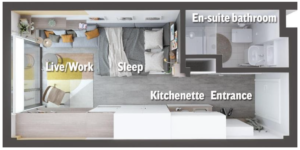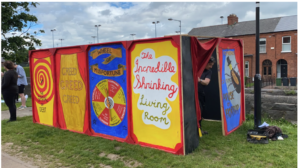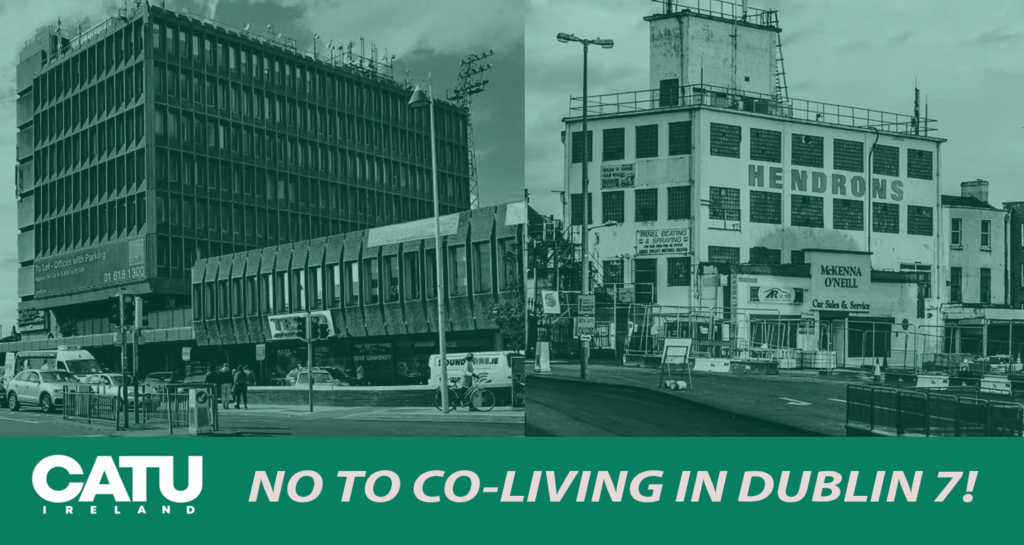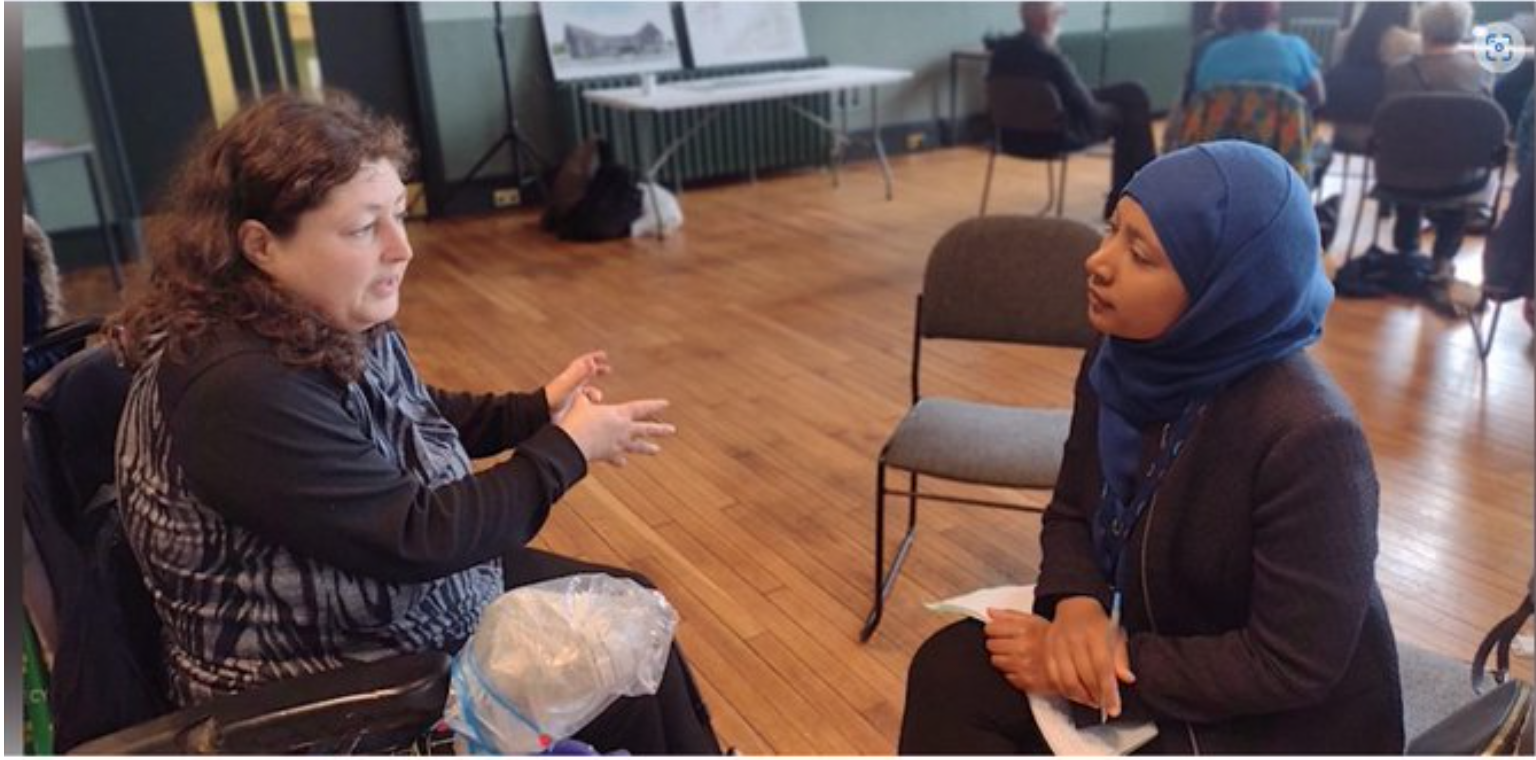By a CATU Phibsboro-Glasnevin member (@CGlasnevin)
Nowhere is Ireland’s long-running housing crisis more visible than between Dublin’s two canals, which ring the city centre from east to west. The four postcodes in this stretch account for around a third of all homeless people in the country, while average rents stand at an eye-watering €1,974.
Substandard and insecure housing, overcrowding, rough sleeping, forced evictions and extensive use of state-funded but privately-run ‘emergency accommodation’ are all standard features of Dublin’s housing system in 2021.
Our members form a north Dublin branch of the Community Action Tenants’ Union (CATU), an all-Ireland tenants’ union launched in 2020. The neighbourhoods of Phibsboro and Glasnevin have been badly hit by the housing crisis. Chronic overcrowding, poor housing stock and a rental system weighted heavily in favour of the landlord class has led to extreme housing insecurity and inequality in our community. Close to 3,000 people are currently on the public housing waiting list in this one small part of Dublin city, yet social housing construction remains pitifully low.
Since our local branch launched in May 2020, we’ve been involved in successful membership defences and forced eviction threats, as well as growing our own base locally and contributing to the development of CATU at a national level. As a grassroots tenants’ union, we’re led by our members on deciding on issues that matter locally.
In January 2021, plans for around 600 co-living ‘units’ were announced at two very prominent sites within 1km of each other in our neighbourhood. Our members immediately brought it up for discussion at a branch meeting and a decision was taken to campaign against the developments. We were soon joined by neighbouring CATU branches in Cabra and Mountjoy Dorset.
Our members had good reason to object to the proposals.
Co-living has become somewhat of a byword for the totally ineffective and insubstantial Government response to the housing crisis in Ireland. In 2019, the then Housing Minister made desperate attempts to justify co-living schemes on behalf of the influential property developers who had introduced the model to Ireland, going as far as to refer to the undersized units as ‘trendy boutique hotels’ in one interview.
In Dublin, like Manchester and other cities where housing has been weaponised as an instrument of international finance, co-living seeks to maximise profits for developers and the private equity funds who back them by squeezing space and lowering standards. Rents in short-lease co-living developments typically run to well over €1,000 per month, and on essentially every level do not meet any of the basic needs of practically everyone living here. New co-living developments were banned in Ireland at the end of 2020, but a neatly-signposted waiver on applications that were entered before the deadline were given the green light to proceed.
Our campaign was relieved when Ireland’s national planning body rejected the first co-living scheme in April. There was no such luck for the second proposal, which envisages almost 300 tiny co-living spaces crammed into a local shopping centre. The development in Phibsboro, a neighbourhood on the northside of Dublin city, has sparked significant public backlash. As a community union, the focus on harnessing these views into a progressive campaign which not only challenges the project’s blatant attempts at profiteering, but also loudly advocates for a Phibsboro for the many, not the few.

Organising in a pandemic
The owners of the Phibsboro Shopping Centre is a real estate company called MM Capital who are keen to take maximum financial advantage of Ireland’s dysfunctional housing system. MM Capital continues to insist that co-living is the ‘only option’ for this prominent site. Their criteria for measuring the viability of potential uses of course only extends to maximising profit from every square foot of the site, rather than truly considering the best interests of the community.
Despite the obvious impediments to organising opposition during a lockdown, we looked around for some way to bring people together, some way that people could break out of the political isolation that the necessary physical distancing has placed us all in.
Until mid-May, any significant physical interventions in the community were limited by the Gardaí’s (police) selective enforcement of the COVID restrictions on mass gatherings.
Despite this, we managed to stage pop-up events with a co-living model, designed to highlight the plans locally and spark discussions with members of the community who opposed the development. This drew great local attention and managed to bring what was at stake back into public conversation on social media.

We also launched an online survey/petition that would ask people what they thought of the co-living plans. The idea was that the petition could serve as a hub around which a community campaign could be built and alternatives proposed.
The results have been encouraging. Within the space of a few weeks the petition was completed by around 1,500 people with the overwhelming sentiment that co-living is not wanted in the community. Our members follow up with signees who have agreed to be contacted by phone, text and email, to see if they want to join the campaign in any way.
As well as giving people the opportunity to get involved with the campaign, the petition left space to share thoughts on alternative uses for both sites and give voice to a frustration felt by locals in the area at the unjust nature of the housing crisis. Despite making up a huge portion of the population, it’s clear people in Dublin feel they have little or no meaningful outlet for their rage at a system that has failed to provide the most basic of needs; decent and secure housing. This, in the most expensive city to live in the eurozone, while an investment fund is freely allowed to railroad overpriced and banned co-living into the middle of the community.
“The current proposal to turn Phibsboro Shopping Centre into hotel room sized ‘co-living units’...is based on a policy of maximising profits for investors and developers at any cost rather than progressive urban planning that puts the needs of our society first,” read one typical response to our petition.
Others pointed to the deep frustration and human impact of the housing crisis on peoples’ lives in our community.
“I'm 27 with a full time job and can't afford rent anywhere in Dublin unless it's sharing a bedroom with three other people for €600+ a month. It's not sustainable. There is nothing young people can do, we're already working non stop with no prospects of ever owning our own homes or even finding sustainable affordable places to rent longer term. Co-living is not the answer, it's dehumanising and depressing.”
Going forward: linking struggles
As pandemic-related restrictions ease, we’re confident our real life engagement with the community on the co-living plans will continue to resonate with people who live here.
We’re encouraged by the responses we’ve had on the street, knocking on doors, on social media and to our petition. We know that despite the official approval and lack of political will to vocally challenge the plans, the public mood is with us locally.
As well as the co-living campaign, we’ve recently seen a number of evictions among members as pandemic-related protections end. The lack of quality affordable housing, abuses suffered by tenants and those in precarious housing situations, and the seemingly relentless facilitation of developers’ interests over the needs of ordinary people in Dublin are all connected. We see part of our mission locally to draw the links between these factors and engage the community in the process.
This is all the more relevant given the local political reaction to the co-living plans in Phibsboro. Despite vocal early opposition from a number of local politicians, the political will to challenge this development and advocate for the building of inclusive and socially useful amenities has largely vanished. This is despite widespread anger at the effects of the housing crisis, and the role of private equity firms in perpetuating the misery it continues to inflict on working people. The muted and ineffective response from local politicians underlines the Irish political establishment’s complicity in creating and perpetuating this housing crisis; organised communities must make their voice be heard collectively instead.
Our members therefore see a real mandate to continue our opposition to co-living in our community. We’ll continue our fight against the plans in this part of Dublin, up to and including direct action, while also loudly advocating for the infrastructure that our community so badly needs; decent, secure and truly affordable housing.
Follow CATU Phibsboro-Glasnevin for more on our campaign.
4 July 2021





